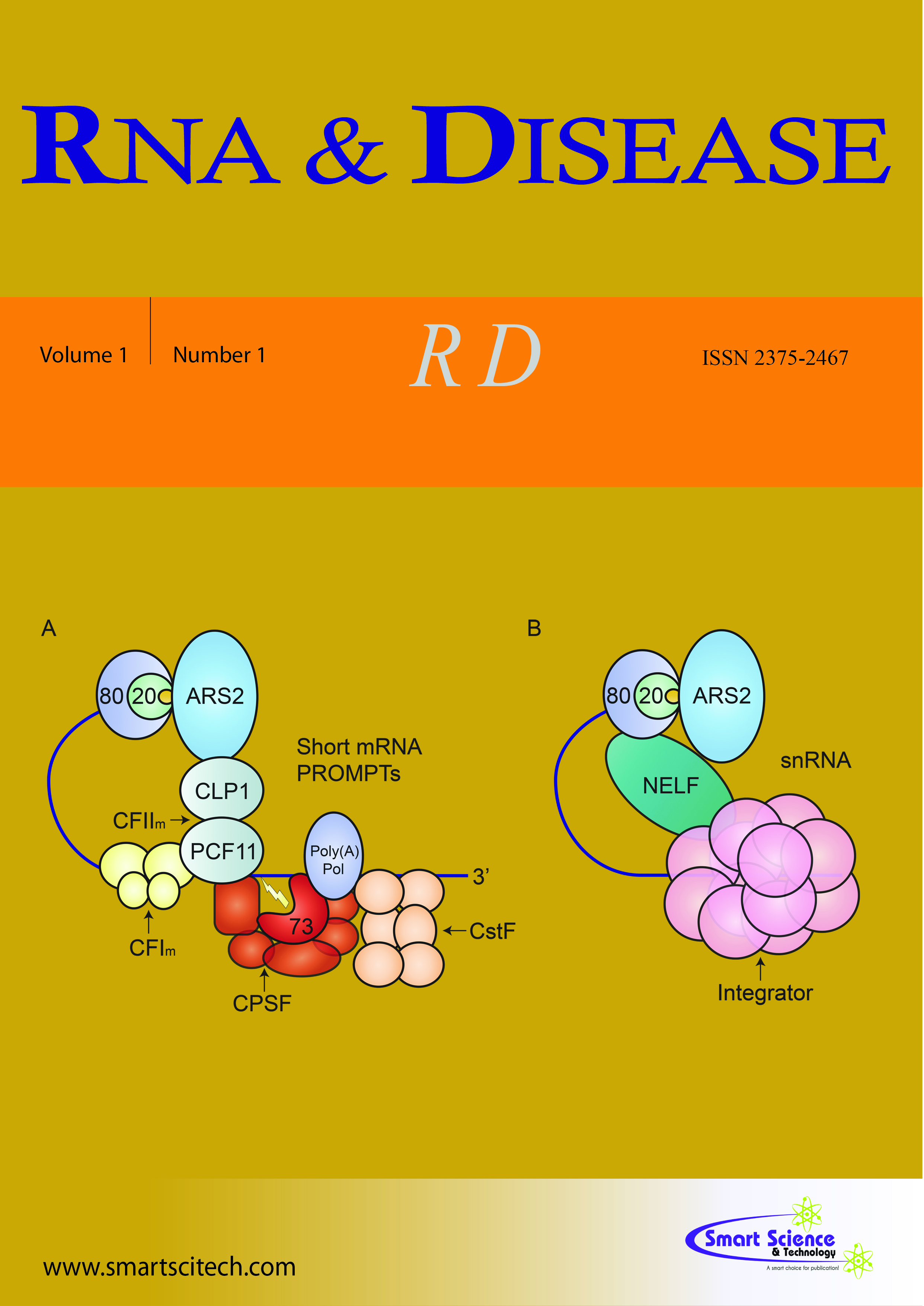An insight into interaction of cell cycle regulating miRNAs and Hepatitis B virus X protein
DOI: 10.14800/rd.818
Abstract
The perspective of disease development can often be attributed for deregulation of gene expression. Hepatocellular carcinoma (HCC) is the one of most common malignancies worldwide and chronic Hepatitis B Virus (HBV) infection is one of the major risk factors in development of HCC. Information about microRNA mediated regulation of viral infections is just emerging. MicroRNAs are about 19- 23 base pair long functional transcripts that regulate gene expression by cleavage or translational repression of target mRNA. Oncogenic (or tumor suppressive) roles of miRNA in many aspects of cancer biology and wide spread differential expression of miRNAs in different stages of HBV related Hepatocellular Carcinoma (HCC) compared with normal tissues are well documented. During HBV infection, perturbations of miRNA expression particularly cell cycle regulating miRNAs might have significant correlation with HCC development. Hepatitis B virus X protein (HBx) is a multifunctional protein that balances cell proliferation and programmed cell death by its anti and pro-apoptotic function. It affects transcriptional activation via its interaction with nuclear transcription factors as also cytoplasmic modulation in various signal transduction pathways contributing to cell proliferation and survival. HBx is often referred as oncoprotein for its crucial role in the development of HCC. HBx-miRNA interaction in HBV related HCC was the focus of much attention over last few years. HBx is found to modulate several miRNAs that are associated with HBV related HCC. This review concentrates on the interaction of HBx protein with some of the miRNAs that are essentially associated with cell proliferation and found modulated in HCC. HBx-miRNA interactions provide new insight into possible way by which viral protein acts through microRNA and thereby regulate host functioning. Finally, the HBx-miRNA interaction can be utilized as a therapeutic strategy for management of HBV related HCC.












